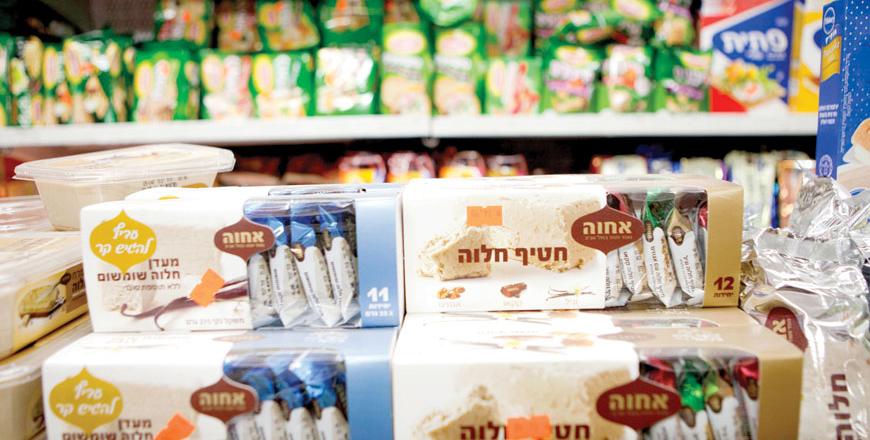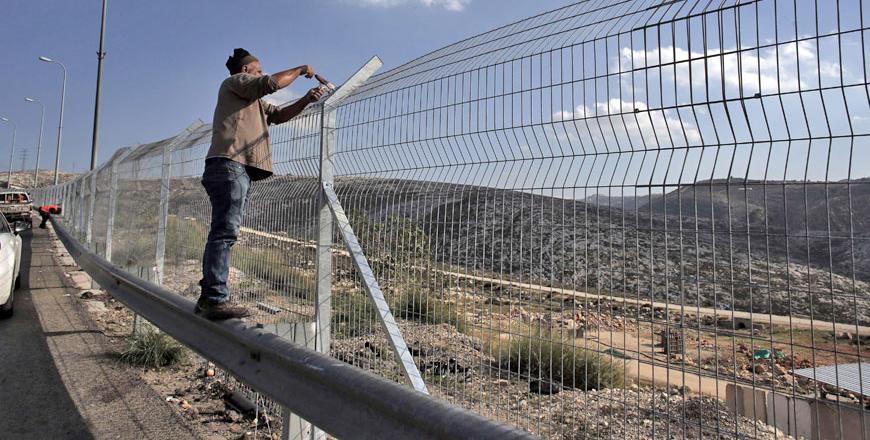You are here
EU moves ahead with labelling goods made in Israeli settlements
By Reuters - Nov 12,2015 - Last updated at Nov 12,2015

Food products manufactured in a Jewish settlement in the West Bank are on display at a supermarket in Tel Aviv, Wednesday (AP photo)
BRUSSELS/OCCUPIED JERUSALEM — The European Union published new guidelines on Wednesday for labelling products made in Israeli settlements, a move Brussels said was technical but Israel branded "discriminatory" and damaging to peace efforts with the Palestinians.
Drawn up over three years by the European Commission, the guidelines mean Israeli producers must explicitly label farm goods and other products that come from settlements built on land occupied by Israel if they are sold in the European Union.
Israeli officials, briefed that the decision was coming, were quick to denounce it. The foreign ministry said it was a political move designed to pressure Israel over its settlements policy.
It summoned the EU ambassador to Israel and said it would suspend diplomatic dialogue in the coming weeks.
Prime Minister Benjamin Netanyahu, who was in Washington on an official visit, called the decision “hypocritical and a double standard”.
The EU’s position is that the lands Israel has occupied since the 1967 Middle East war — including the West Bank, East Jerusalem and the Golan Heights — are not part of its internationally recognised borders.
As such, goods from there cannot be labelled “Made in Israel” and should be labelled as coming from settlements, which the EU considers illegal under international law.
The development of settlements has been one of the obstacles to negotiations between Israel and the Palestinians.
“It’s an indication of origin, not a warning label,” the EU ambassador to Israel, Lars Faaborg-Andersen, told Reuters.
Britain, Belgium and Denmark already affix labels to Israeli goods, differentiating between those from Israel proper and those, particularly fruits and vegetables, that come from the Jordan Valley in the occupied West Bank. Now, all 28 EU member states would have to apply the same labelling.
While there is no EU official wording, goods must carry the word “settlement” on the tag when sold in European shops. If an Israeli farmer refuses, a retail outlet can attach the label themselves, as the European Commission has sufficient information about where goods come from.
The details of the guidelines, set out in a five-page document, were published online, making clear that they involve no changes to existing laws but are merely clarifications.
Israel’s economy ministry estimates the impact of Wednesday’s decision will be about $50 million a year, affecting fresh produce such as grapes and dates, wine, poultry, honey, olive oil and cosmetics made from Dead Sea minerals.
That is around a fifth of the $200-$300 million worth of goods produced in settlements each year, but a drop in the ocean next to the $30 billion of goods and services traded between Israel and the European Union each year.
Related Articles
OCCUPIED JERUSALEM — Israel said on Sunday it was suspending contacts with European Union bodies involved in peace efforts with the Palestin
TEL AVIV — Few issues have caused more friction between Israel and the European Union than EU plans to impose labelling on goods produced in
OCCUPIED JERUSALEM — The EU agreed this week to push ahead with introduction of labels that specifically identify Israeli goods made i












